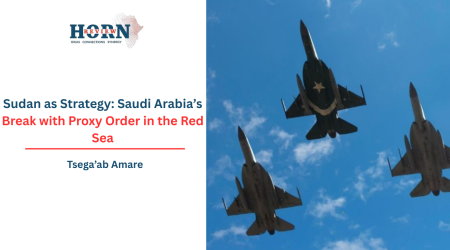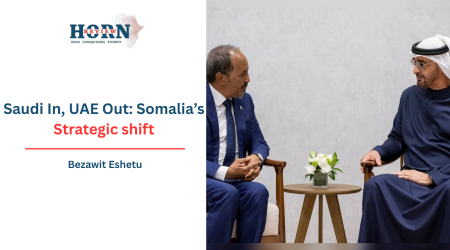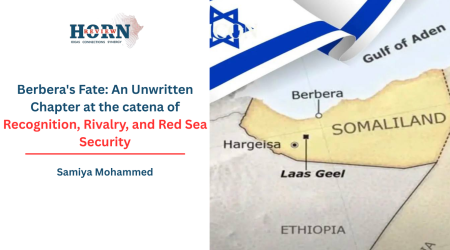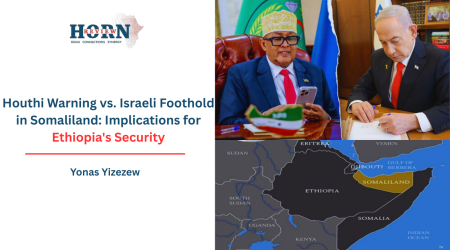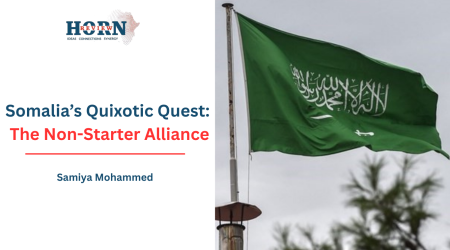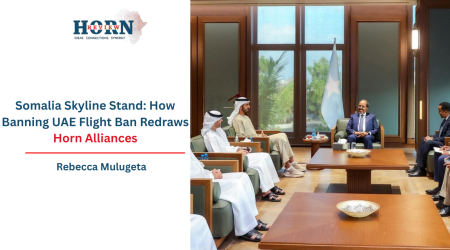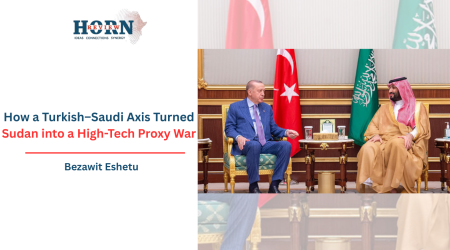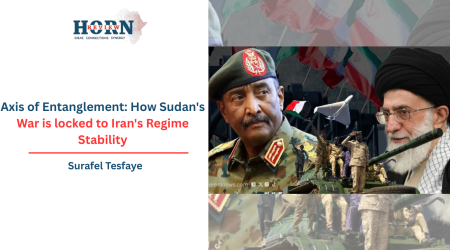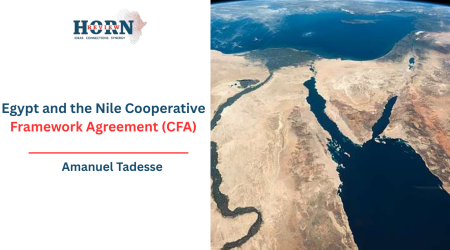
19
May
From Moral Authority to Operational Imperatives: Forging a Unified and Enforceable Roadmap to End Sudan’s Cycle of Conflict
The eruption of full-scale hostilities between General Abdel Fattah al-Burhan’s Sudanese Armed Forces (SAF) and General Mohamed “Hemedti” Dagalo’s Rapid Support Forces (RSF) on 15 April 2023 plunged Sudan into one of the gravest humanitarian disasters on the continent. A civil war that began during Ramadan has since displaced nearly 9 million people internally and forced close to 4 million across borders, while killing more than a hundred thousand and driving famine across multiple states.
The African Union’s (AU) suspension of Sudan in October 2021, imposed after the military coup against a transitional civilian government, has restricted its formal engagement, even as its Peace and Security Council (PSC) repeatedly condemned the violence and called for humanitarian pauses. Meanwhile, the Intergovernmental Authority on Development (IGAD) has leveraged its Horn of Africa mandate, forming an IGAD Quartet, appointing a Special Envoy, and convening a virtual summit on 12 March 2025, to press for ceasefires. However, Khartoum suspended its IGAD membership in January 2024 amid accusations of bias.
While both the AU and IGAD have excelled in rallying international pledges, notably through the 14 February 2025 High-Level Humanitarian Conference in Addis Ababa, they have yet to secure a lasting ceasefire or inclusive political roadmap. A parallel lesson emerges from eastern DRC, where renewed M23 hostilities since late 2021 have displaced over a million civilians and seen rebels seize strategic positions, including the Goma airport in January 2025. This threatens to deprive hundreds of thousands of aid-dependent people of vital supplies. The AU’s perfunctory statements and the lack of coordinated action by SADC and ECCAS underscore the risks of half measures, reinforcing the need for robust enforcement and inclusive dialogue.
From the outset, the AU demonstrated moral leadership. On 20 April 2023, its PSC convened a ministerial session condemning violent hostilities and demanding an immediate ceasefire to enable Eid al-Fitr relief corridors. In its latest public statement, PSC Communiqué 1264 of 11 March 2025, the Council reiterated support for Sudan’s sovereignty, denounced parallel governance by the RSF, and urged non-recognition of any breakaway structures. Yet with Sudan suspended from all AU organs since October 2021, Khartoum’s leaders have boycotted AU-led roadmaps, forcing the Union to rely on indirect diplomacy through neighboring capitals. Compounding this, only 2 percent of AU member contributions are earmarked for humanitarian action, creating chronic funding shortfalls and delaying critical relief operations.
IGAD’s regional proximity enabled more hands-on attempts at mediation. The IGAD Quartet, comprising Kenya, Djibouti, Ethiopia, and South Sudan, held its first meeting in mid-2023 to facilitate face-to-face talks between al-Burhan and Hemedti. In March 2024, Hon. Lawrence Korbandy was appointed as IGAD Special Envoy to broaden civilian engagement, as reported by IGAD. However, persistent accusations of Kenyan partiality prompted Sudan’s January 2024 suspension of its IGAD membership, and successive temporary cessations of hostilities brokered by the Quartet collapsed within days.
When compared, the AU wields normative authority across 55 member states but suffers from operational exclusion, while IGAD benefits from geographic immediacy yet grapples with legitimacy deficits. Overlapping roadmaps, from the AU’s High-Level Panel on Sudan to IGAD’s Quartet and the Saudi-US-led Jeddah process, have sown confusion among combatants about which framework to follow. Nonetheless, both organizations have proved adept at mobilizing donor pledges and advocating for safe humanitarian corridors.
To break the deadlock and forge lasting peace in Sudan, the AU, IGAD, and the Saudi-US Jeddah process must be integrated into a single, time-bound framework endorsed by the United Nations. This framework should include clearly defined roles, milestones, and reporting deadlines to eliminate confusion from parallel tracks. Such a unified roadmap would align the PSC’s pronouncements with IGAD’s Quartet meetings and Jeddah negotiations, presenting the warring parties with one coherent sequence of steps. Crucially, each declaration in this consolidated plan should be tied to calibrated enforcement measures, to raise the political and economic cost of noncompliance.
Simultaneously, fast-tracking the genuine inclusion of civilian voices, including dedicated quotas and budget lines for women’s groups, youth associations, and representatives of the displaced, will ensure negotiations reflect the needs of those most affected by the conflict. Behind-the-scenes engagement must be guaranteed through empowered special envoys who maintain back-channel communication with Khartoum’s suspended authorities, using trusted intermediaries to sustain dialogue when formal channels close, as advised by Crisis Group.
To address urgent humanitarian needs, the AU and IGAD should jointly establish a dedicated emergency fund, earmarking at least 10 percent of AU humanitarian contributions into an AU-IGAD pool for rapid disbursement to frontline agencies. Finally, an interactive and publicly accessible timeline of critical junctures, such as the October 2021 coup, the PSC’s 20 April 2023 ministerial session, and the February 2025 Addis Ababa conference, will provide negotiators, civil society, and media with a shared factual foundation to reinforce accountability.
AU and IGAD should immediately establish a jointly backed, UN-mandated monitoring mission of unarmed observers, equally sourced from the AU, IGAD, and the UN, to oversee and verify a ceasefire in Sudan’s most volatile regions. “Local liaison cells” embedded in Omdurman, Nyala, and El Fasher would serve to relay real-time reports on any violations, while community-negotiated humanitarian-security corridors, brokered by tribal elders and women’s groups, would safeguard aid convoys. A co-branded AU–IGAD rapid-response task force would accompany OCHA distributions to guarantee impartial delivery, and discreet hotlines between AU/IGAD Special Envoys and SAF/RSF commanders, backed by Letters of Intent cosigned by Kenya, Egypt, and Ethiopia, would reinforce leaders’ commitments to maintaining the truce.
With the guns silenced, priority must shift to inclusive dialogue and reconciliation. State-level Peacebuilding Councils in Darfur, Kordofan, and Khartoum would convene to defuse disputes over land and resources, supported by a “Peace Grant Window” funding joint civic initiatives. A two-track National Dialogue Framework would align elite negotiations (SAF, RSF, political parties, civil society) with grassroots town-hall Peace Assemblies, each featuring a percentage of women and youth, to ensure broad representation.
Parallel Local Truth Committees would document human rights abuses and recommend reparations, laying the groundwork for a National Commission on Transitional Justice. Simultaneously, a rotating interim Executive Council, drawing members from SAF, RSF, civilian coalitions, and displaced communities, and an AU–IGAD–UN Security Sector Reform commission would oversee Disarmament, Demobilization and Reintegration (DDR) and Security Sector Reform (SSR) under civilian oversight. Finally, by devolving budgetary powers to State Councils, co-managing a transparent Sudan Peace Facility, and linking conditional aid or sanctions relief to clear ceasefire and reform milestones, publicly tracked, regional guarantor states would provide the incentives and accountability needed to sustain a durable, inclusive transition.
By coupling continental moral leadership with regional grit, enforceable mechanisms, and grassroots participation, the AU and IGAD can overcome their limitations and chart a sustainable path to peace in Sudan, setting a precedent for conflict resolution across Africa.
By Tsega’ab Amare,Researcher,Horn Review

